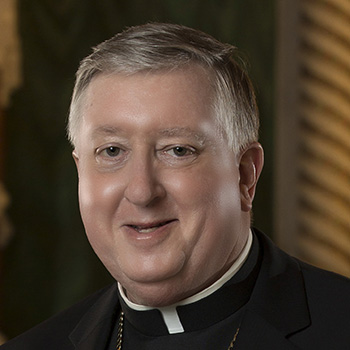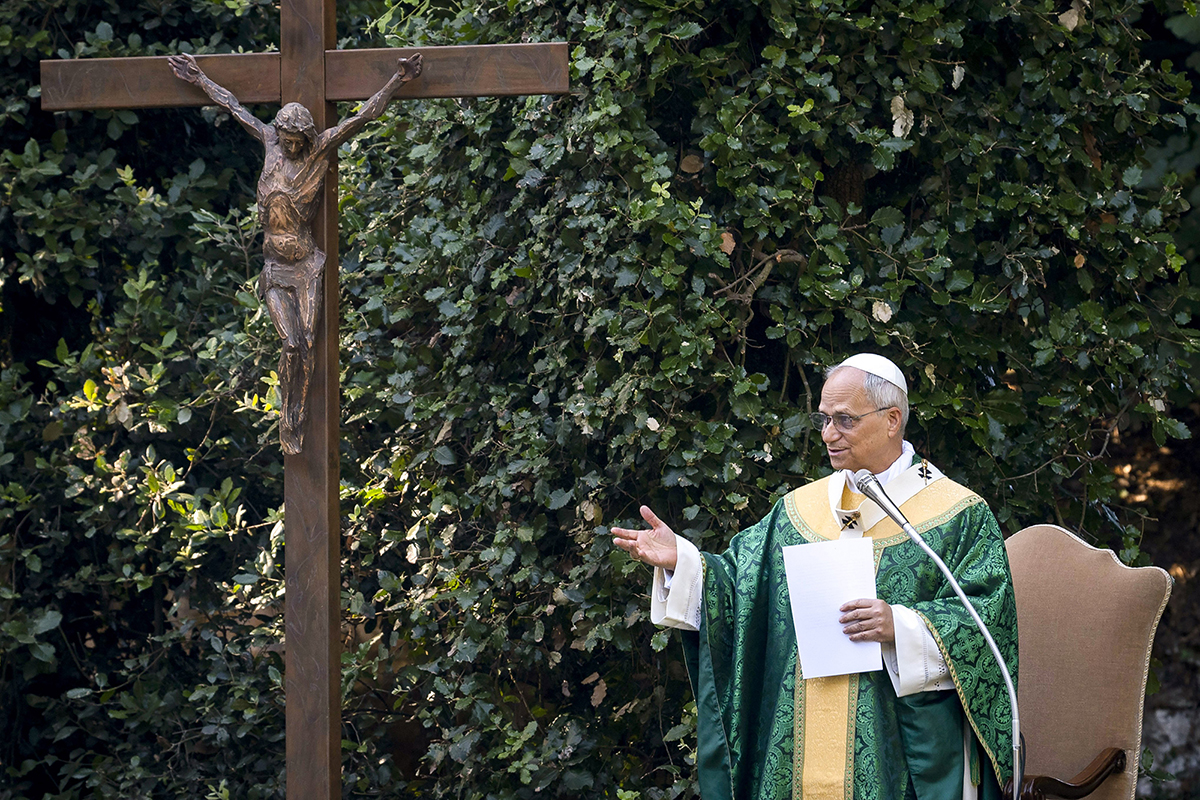SERVE THE LORD WITH GLADNESS | As Catholics, we show our concern with every issue where life and dignity are undermined
Catholic Social Teaching shows us how to make both the distinctions and the connections that are needed

Dear brothers and sisters in Christ,
This week we celebrate an unusual feast day, the nativity of St. John the Baptist.
There are only three birthdays celebrated in the liturgical calendar. 1) The birthday of Jesus on Dec. 25. 2) The birthday of Mary on Sept. 8. 3) The birthday of St. John the Baptist on June 23.
The simplest explanation of why we celebrate these three, and no others, is that their births were different from everyone else’s: Jesus, because He was God in the flesh; Mary, because she was immaculately conceived; and St. John the Baptist because he was sanctified by the Holy Spirit — as the Gospel of Luke says — while he was still in his mother’s womb.
The readings for the feast day carefully and repeatedly highlight this theme of “being called and prepared by God while still in the womb.” The first reading from the vigil notes: “before you were born I dedicated you” (Jeremiah 1:5); the first reading for the feast day notes: “from my mother’s womb He gave me my name” (Isaiah 49:12). The Psalm refrain for the vigil states: “Since my mother’s womb, you have been my strength” (Psalm 71:6); the Psalm for the feast day states: “you knit me in my mother’s womb” (Psalm 139:13). The Gospel for the vigil states: “He [John] will be filled with the Holy Spirit even from his mother’s womb” (Luke 1:15). Finally, the Gospel for the feast day talks about the remarkable circumstances surrounding John’s birth.
It seems fitting to reflect on this feast day and theme as we prepare for a momentous Supreme Court decision regarding life in the womb. If Roe v. Wade is overturned, how should we react?
Well, first, I think we can and should rejoice — a harmful legal precedent will have fallen. Our nation’s history has taught us that no group of human beings should be classified in law as non-persons. When they are, there are terrible consequences for individuals and for society, and that has certainly been true of abortion.
Second, though, I think we will need to react with determination.
We will need to be more determined than ever to walk with moms in need. Anyone who feels overwhelmed by pregnancy should have places to turn for practical help. We need to be committed to providing that help.
We will need to be more determined than ever to secure legislation concerning abortion and alternatives to abortion on the state level. Thankfully, this twofold approach has been a hallmark of Missouri’s legislation.
Finally, we will also need to be more determined than ever to show the connections between all the issues that touch on human life and dignity in Catholic Social Teaching. The first and most important of these is the direct destruction of innocent life in the womb, and we cannot claim to stand for Catholic Social Teaching if we ignore this issue. But our case for defending life is more credible — people hear us better — when we make it clear that we’re concerned with every issue where life and dignity are undermined. Catholic Social Teaching shows us how to make both the distinctions and the connections that are needed.
If Roe v. Wade is overturned, we will have an historic opportunity to reshape political discourse. That won’t be easy. But Catholic Social Teaching gives us the tools to do it. I hope we can seize the moment.





